Kuttichathan Theyyam is a popular ritualistic art form that originated in the northern part of Kerala, India. It is performed to worship and seek the blessings of Kuttichathan, a minor deity or demi-god who is revered for his mischievous and playful nature.
The performances are usually held in temples, households, and other sacred places and involve a wide range of rituals, such as the offering of sacrifices, blessings, and purification ceremonies. The performances are believed to have the power to ward off evil, bring peace and prosperity, and offer protection from negative energies.
Kuttichathan Theyyam History
According to legend, when Lord Shiva and Parvati took the form of Valluvan and Valluvathi, they had a son named Kuttichathan. The divine couple gave Kuttichathan to a childless Namboodiri from the Kalakatt Illam. However, Kuttichathan was not willing to follow the Guru’s teachings and instead started practicing customs that were against the Brahmanical traditions. Despite his exceptional intelligence, the Guru was unable to answer many of Kuttichathan’s questions. As a result, the Guru reprimanded and even physically punished Kuttichathan for his disobedience. In response, Kuttichathan sought revenge by killing the Guru and leaving the place.
Upon realizing Kuttichathan’s disobedience, the Namboothiri instructed his wife, Atholamma, not to feed the child. When Kuttichathan asked for milk and was refused, he became enraged and killed a bull, drinking its blood. The Namboothiri, angered by Kuttichathan’s actions, killed him. However, Kuttichathan was reborn. The Namboothiri then summoned a large group of Brahmins and killed Kuttichathan again,burning them in 21 Homakundams, which are holy kilns. From the ashes of Kuttichathan’s body, many Kuttichathans were born, and they set fire to the Namboothiri’s house and the houses of nearby Brahmins. Eventually, the people decided to worship the persecuted Kuttichathan as Theyyam, leading to the emergence of the Kuttichathan Theyyam tradition.
Various Types of Kuttichathan Theyyam
Kuttichathan Theyyam is a ritualistic performance art form of Kerala, India, that is performed to appease the deity Kuttichathan, who is believed to be a mischievous and playful spirit. There are several types of Kuttichathan Theyyam, each with its unique characteristics and significance. Some of the most popular types of Kuttichathan Theyyam are:
- karim kuttichathan theyyam
- Thee Kuttichathan Theyyam
- Poothan Kuttichathan Theyyam
- Chamundi Kuttichathan Theyyam
- Muthor Theyyam
- Raktha Chamundi Kuttichathan Theyyam
- Kari Chamundi Kuttichathan Theyyam
- Karimbana Kuttichathan Theyyam
- Vellattam Kuttichathan Theyyam
- Kandakarnan Kuttichathan Theyyam
karim kuttichathan theyyam: Karim Kuttichathan Theyyam is believed to have the power to protect people from evil spirits and negative energies. It is often performed in villages and towns to ward off evil and bring peace and prosperity to the community.
Thee Kuttichathan Theyyam: Thee Kuttichathan Theyyam is believed to have the power to purify and cleanse people of negative energies and sins. It is often performed in temples and other sacred places to invoke the blessings of the deity and ward off evil spirits.
Poothan Kuttichathan Theyyam: This type of Kuttichathan Theyyam is performed to seek the blessings of the goddess Bhagavathy, who is believed to be the mother of Kuttichathan. The performer wears a colorful headdress and carries a small stick, which is believed to have the power to ward off evil spirits.
Chamundi Kuttichathan Theyyam: This type of Kuttichathan Theyyam is performed to honor the goddess Chamundi, who is believed to be a fierce and powerful deity. The performer wears a distinctive headdress and carries a sword, which is used to symbolize the power of the goddess.
Muthor Theyyam: This type of Kuttichathan Theyyam is performed to seek the blessings of the goddess Muthor, who is believed to be the protector of children. The performer wears a distinctive headdress and carries a small stick, which is used to bless children and protect them from harm.
Raktha Chamundi Kuttichathan Theyyam: This type of Theyyam is performed to appease the goddess Chamundi, who is believed to be the mother of Kuttichathan. The performer wears a red-colored costume and is adorned with a crown of red flowers.
Kari Chamundi Kuttichathan Theyyam: This type of Theyyam is performed to appease the goddess Kari Chamundi, who is believed to be the sister of Kuttichathan. The performer wears a black costume and is adorned with a crown of black flowers.
Karimbana Kuttichathan Theyyam: This type of Theyyam is performed to appease Kuttichathan in his ferocious form. The performer wears a red-colored costume and is adorned with a crown of thorns.
Vellattam Kuttichathan Theyyam: This type of Theyyam is performed to appease Kuttichathan in his playful form. The performer wears a white-colored costume and is adorned with a crown of white flowers.
Kandakarnan Kuttichathan Theyyam: This type of Theyyam is performed to appease Kandakarnan, a legendary hero who is believed to have defeated Kuttichathan in a battle. The performer wears a black costume and is adorned with a crown of black flowers.
Kuttichathan Theyyam Videos
Conclusion
Kuttichathan Theyyam has also been influenced by various religious and cultural movements that have taken place in the region over the years. The performance of Kuttichathan Theyyam is considered a sacred and spiritual practice, and is believed to be a powerful tool for offering protection and blessings to the community.
Today, Kuttichathan Theyyam continues to hold significant cultural and religious importance in northern Kerala, and is celebrated with great enthusiasm and fervor during the festival season. The performance of Kuttichathan Theyyam is a testimony to the rich cultural heritage and spiritual traditions of the people of Kerala.
We hope that our website, “Hidden Mantra,” has provided valuable insights into the world of Theyyam and that it will inspire you to explore this rich and fascinating tradition further. Read More Related Blogs
Various Types of Kuttichathan Theyyam Photos :
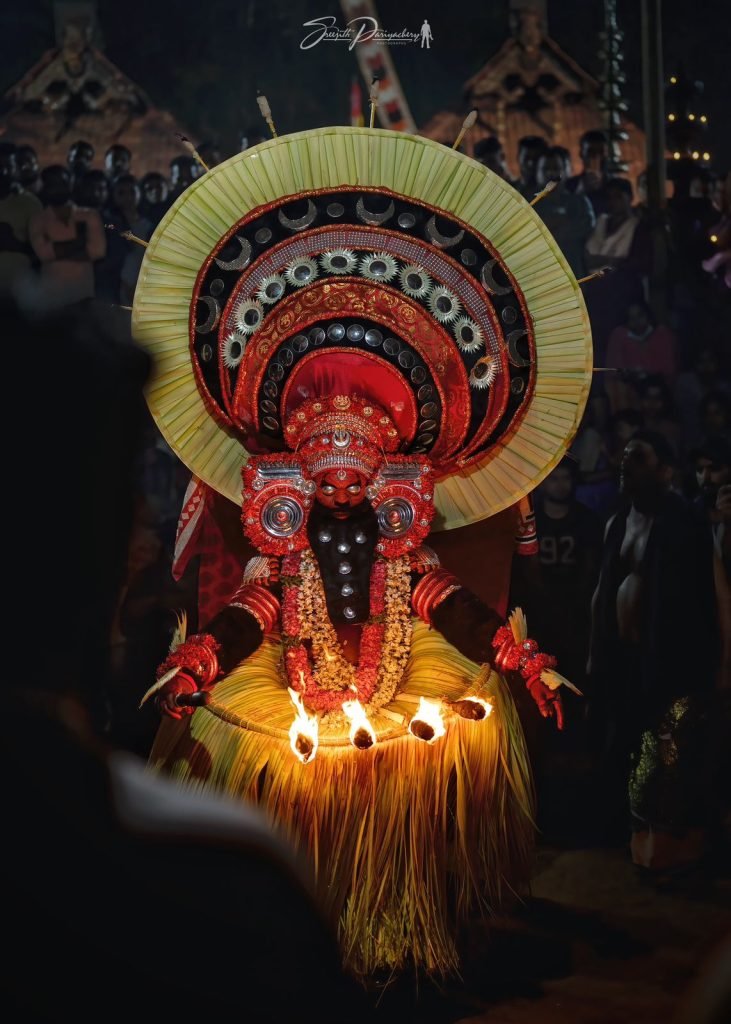
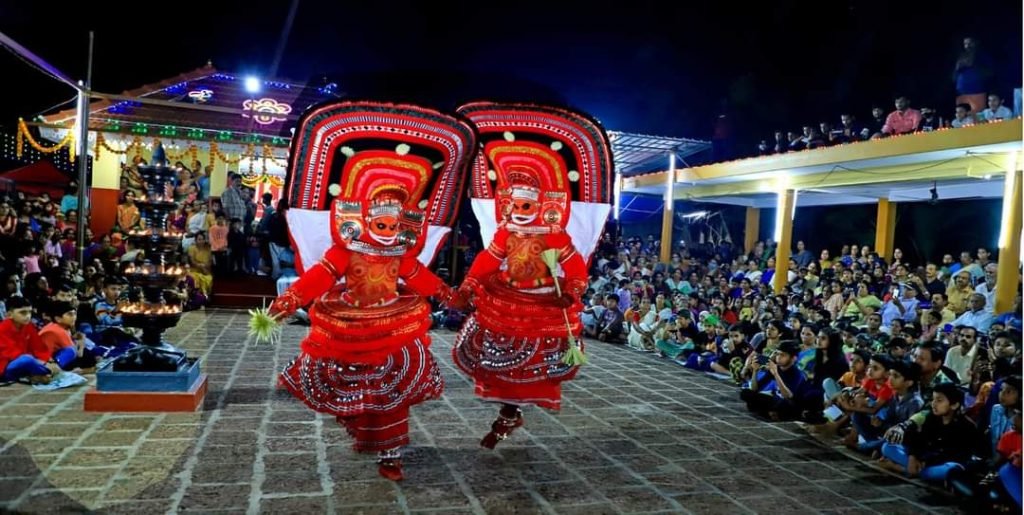

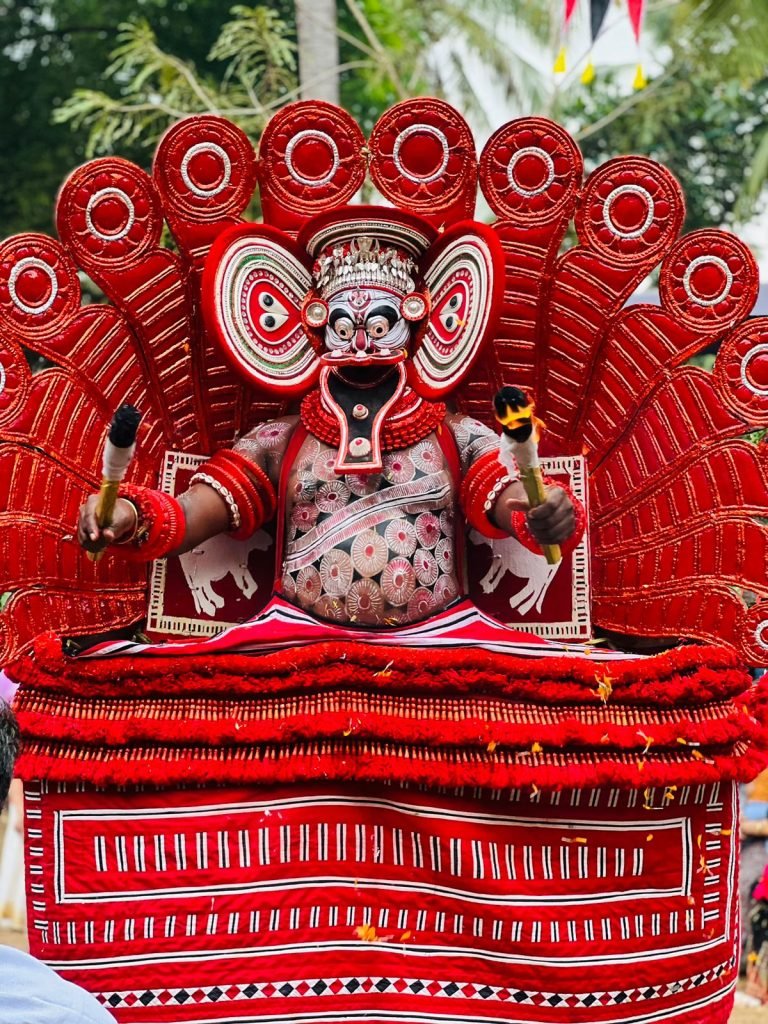
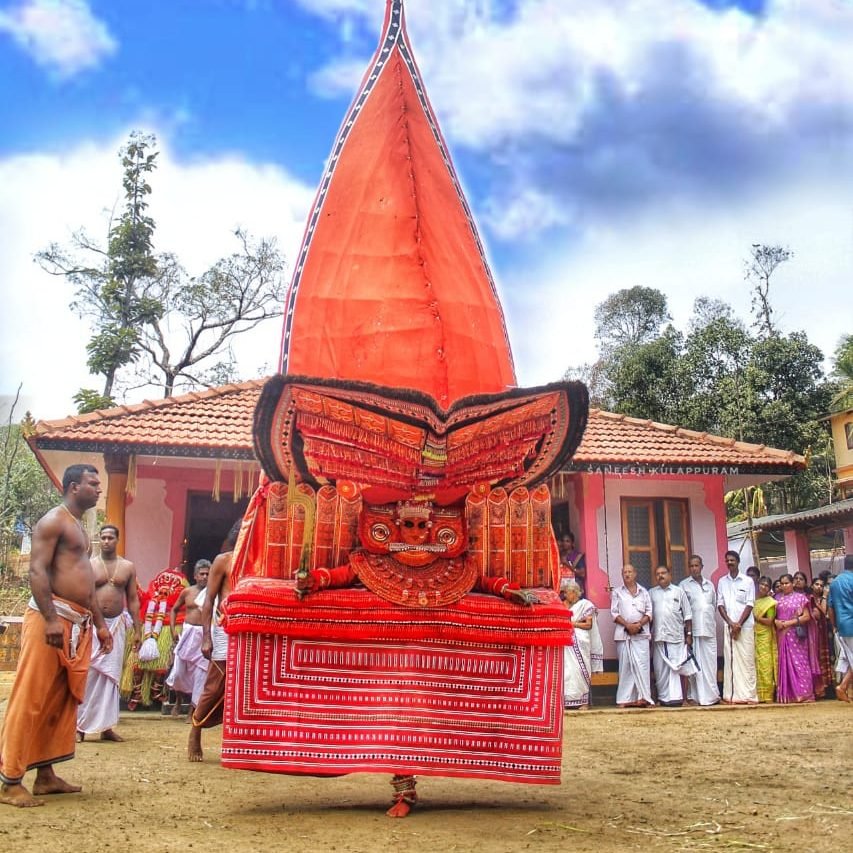
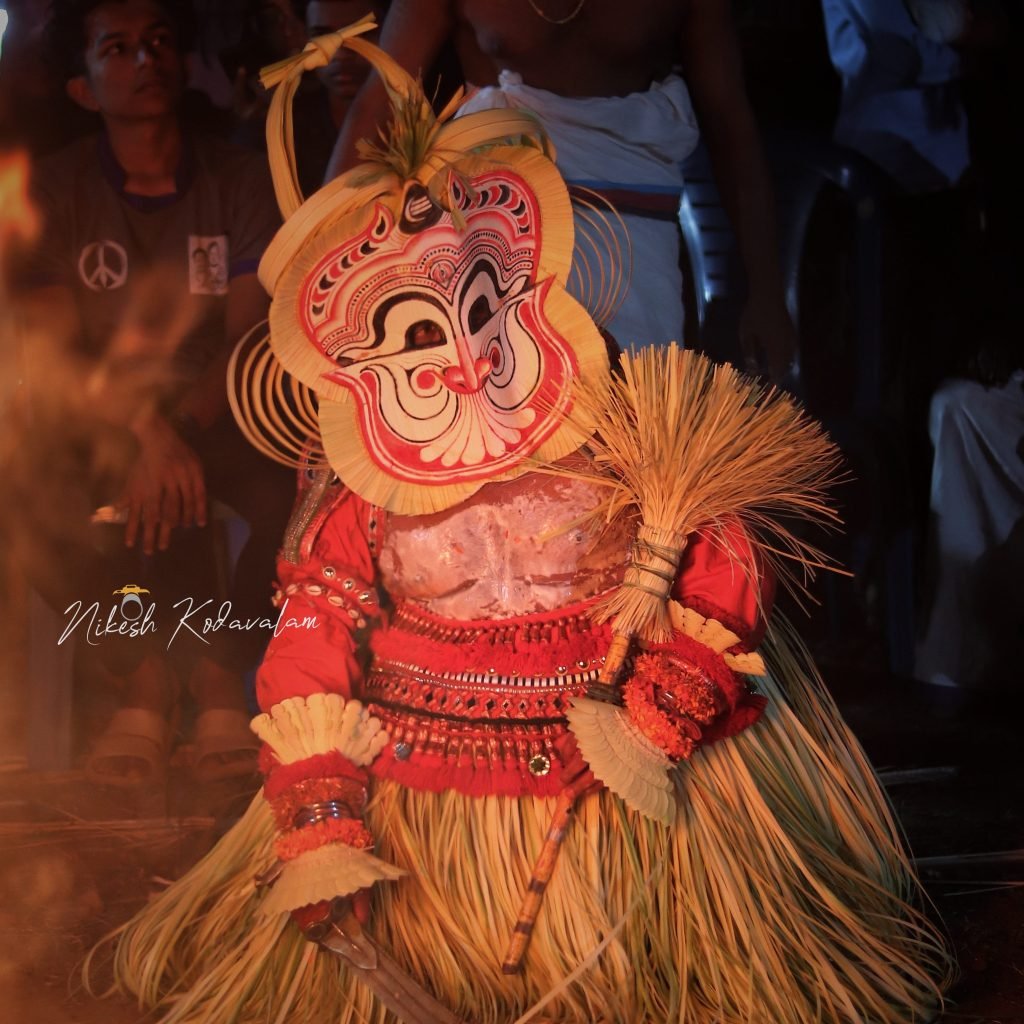
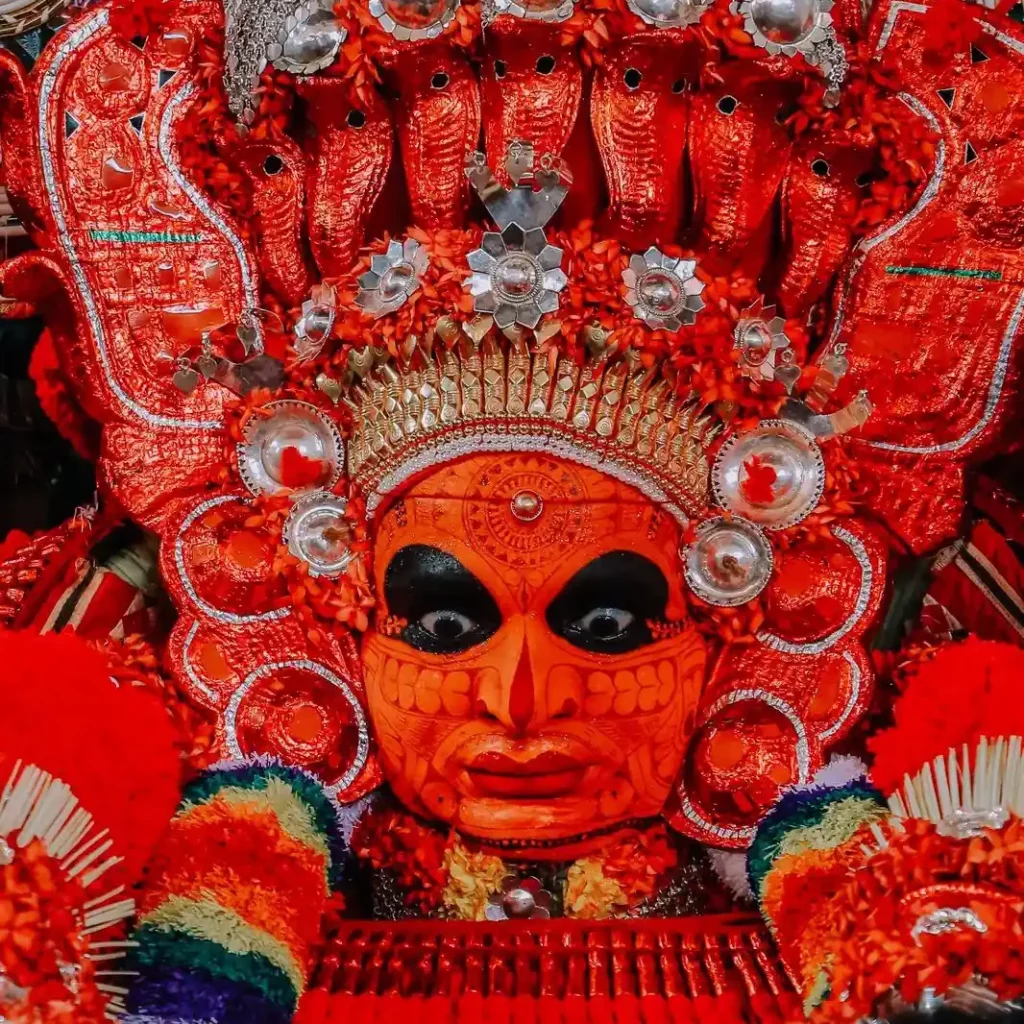







5 Responses